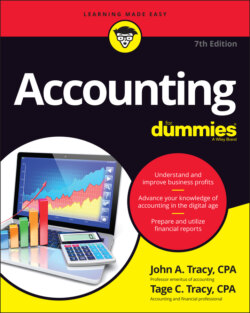Читать книгу Accounting For Dummies - John A. Tracy - Страница 51
Can you trust financial statement numbers?
ОглавлениеWhether the financial statements are correct depends on the answers to two basic questions:
Does the business have a reliable accounting system in place and employ competent accountants?
Has its management manipulated the business’s accounting methods or deliberately falsified the numbers?
We’d love to tell you that the answer to the first question is always yes and that the answer to the second question is always no. But you know better, don’t you? A recent survey of 400 chief financial officers and financial executives revealed that they think that about 20 percent of corporations distort their earnings reports (income statements) — even though the companies stay within the boundaries of accepted accounting standards. We would estimate that for most businesses, you should take their financial statements with a grain of salt and keep in mind that the numbers could be manipulated in the range of 10 to 20 percent higher or lower. Even though most people think accounting is an exact science, it isn’t. There’s a fair amount of play in the numbers, as we discuss later in this book.
Furthermore, there are lots of crooks and dishonest persons in the business world who think nothing of manipulating the accounting numbers and cooking the books. Also, organized crime is involved in many businesses. And we have to tell you that in our experience, many businesses don’t put much effort into keeping their accounting systems up to speed, and they skimp on hiring competent accountants. In short, there’s a risk that the financial statements of a business could be incorrect and seriously misleading.
To increase the credibility of their financial statements, many businesses hire independent CPA auditors to examine their accounting systems and records and to express opinions on whether the financial statements conform to established standards. In fact, some business lenders insist on an annual audit by an independent CPA firm as a condition of making a loan. The outside, non-management investors in a privately owned business could vote to have annual CPA audits of the financial statements. Public companies have no choice; under federal securities laws, a public company is required to have annual audits by an independent CPA firm.
Two points: CPA audits are not cheap, and these audits aren’t always effective in rooting out financial reporting fraud by managers. Unfortunately, there have been many cases of CPA auditors failing to detect serious financial fraud that had been going on for years, right under their auditing noses. Cleverly concealed fraud is very difficult to uncover, unless you stumble over it by accident. CPAs are supposed to apply professional skepticism in doing their audits, but this doesn’t always lead to discovery of fraud.
